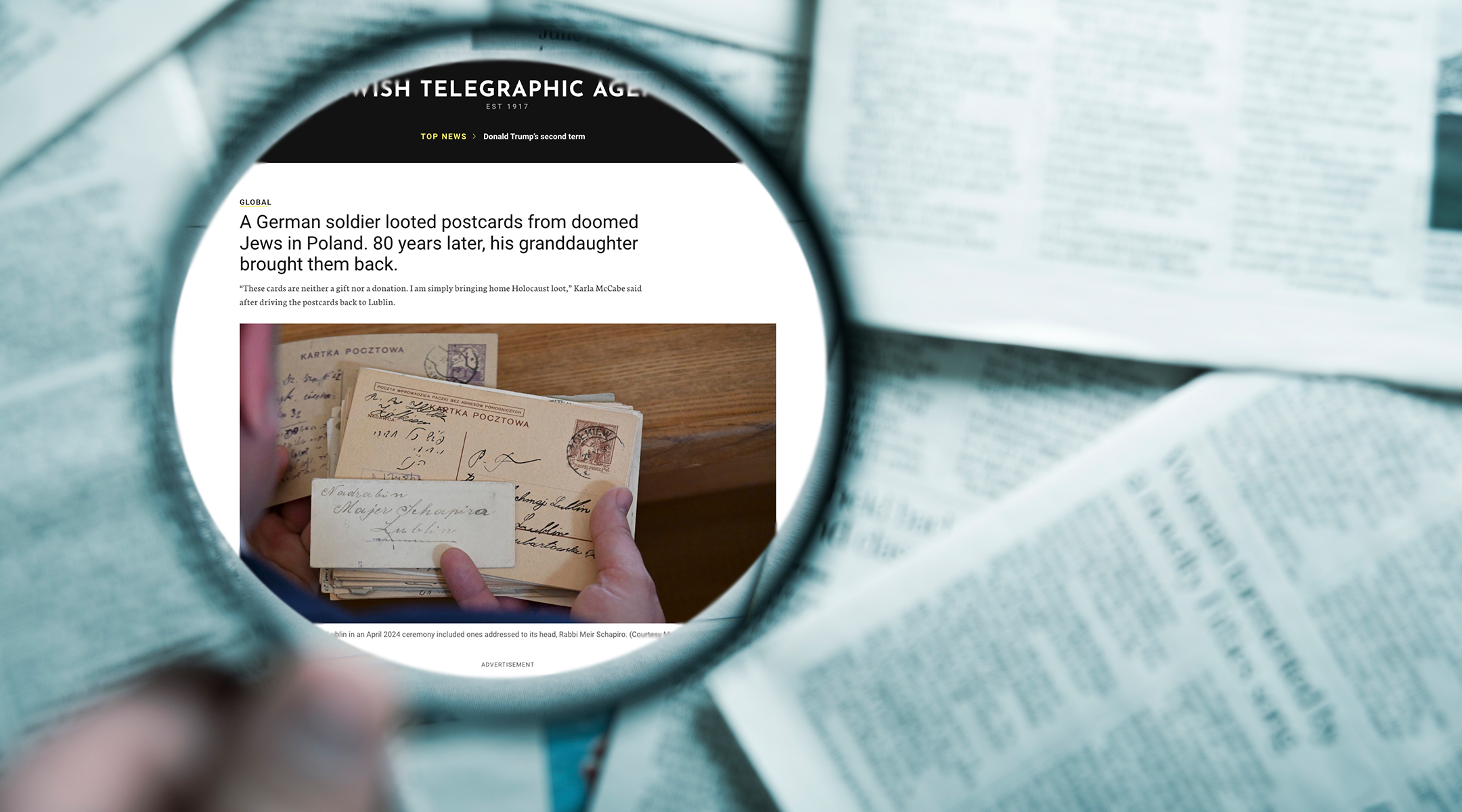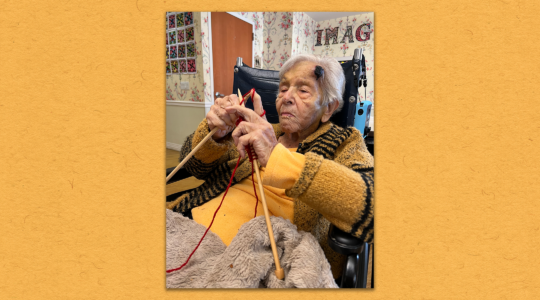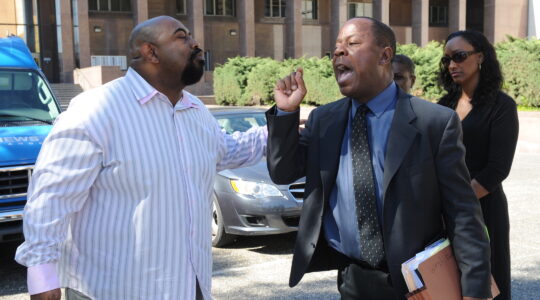Some Jewish stories of the last year have been impossible to miss: Israel at war, antisemitism around the world, a U.S. presidential election featuring Jewish politicians.
Others may have slipped under the radar, drowned out by the drumbeat of breaking news. Here, we draw your attention to eight such stories, starting with one we published at the very beginning of the year.
The magical life of Albert Levis, a scholar of storytelling who has his own improbable tale
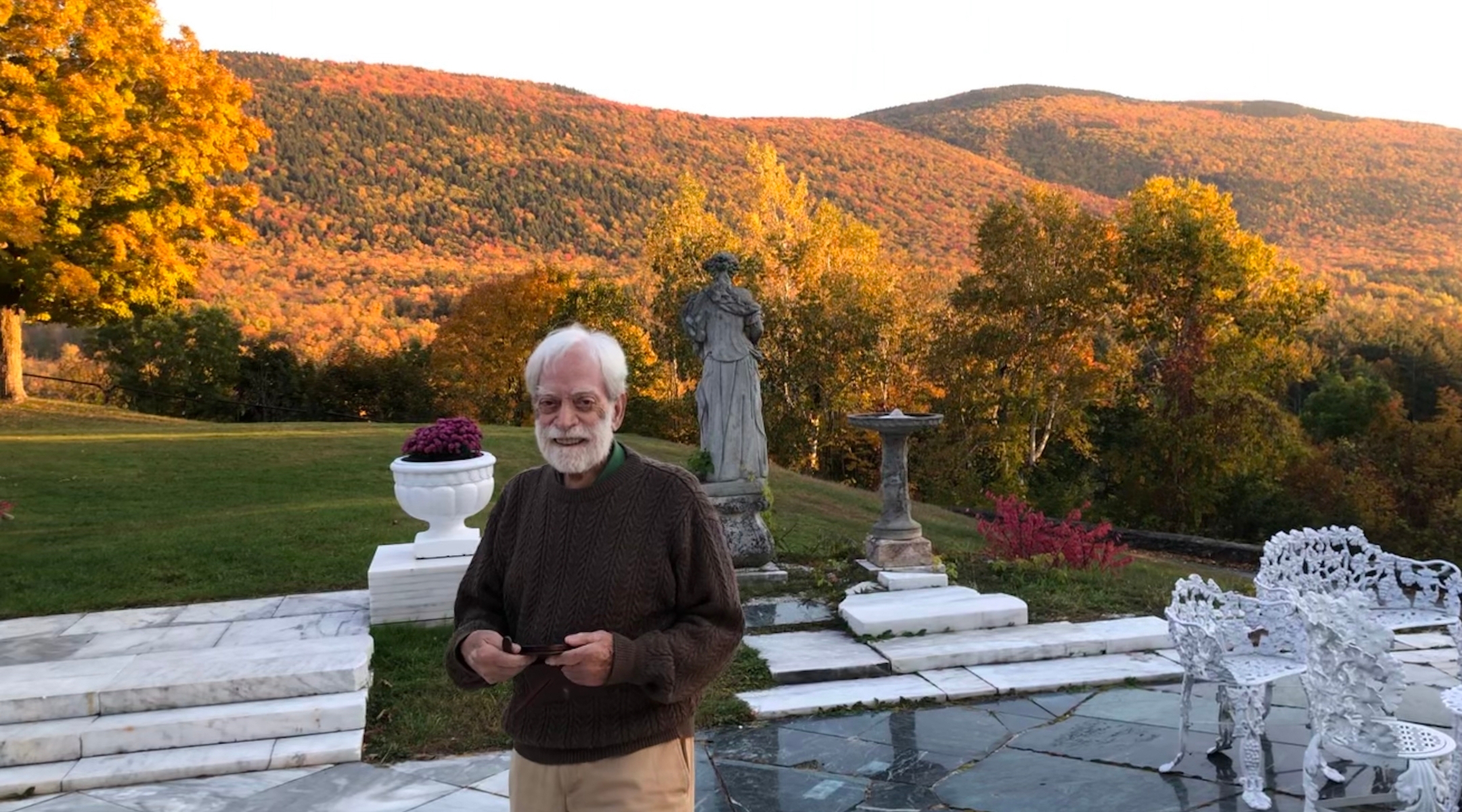
Albert Levis overlooking the deck of his Wilburton Inn, Manchester, Vermont, October 11, 2022. (Andrew Lapin/JTA)
Albert Levis, in his late 80s, is a Holocaust survivor from Greece, a psychiatrist, a real-estate investor, a businessman, an author, a student of Jewish philosophy, a possible future documentary star, and a ceaseless searcher of the human condition. From his home in Vermont, where his family operates an inn, he has also embarked on a single-minded quest to explain the scientific process by which humanity turns traumatic, morally troubling experiences into stories. He believes it can rid the world of war and strife — if only people would listen.
This teenaged girl studied the whole Talmud in just 2.5 years
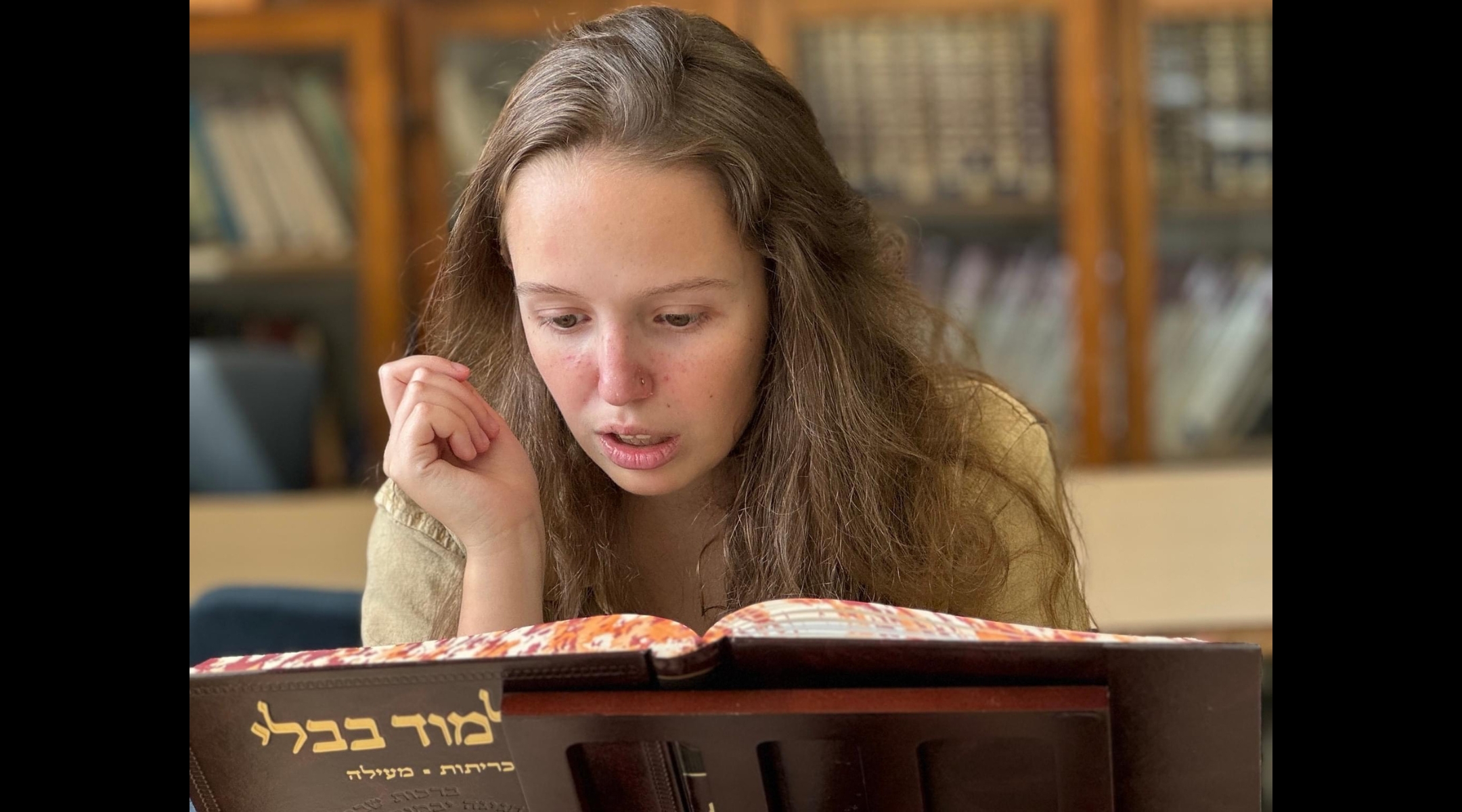
Elke Bentley, 18, completed reading the Babylonian Talmud in just two and a half years. (Courtesy Elke Bentley)
When she was 14, Elke Bentley could hear her father’s online Talmud classes through the wall between her bedroom and his home office in Brookline, Massachusetts. Undeterred by the 5 a.m. start time, she tuned in as the men did Daf Yomi, a regimen of page-a-day Talmud learning that stretches over seven and a half years. She decided she wanted to do it faster. This year, she pulled it off, completing the entire Babylonian Talmud at 18 before heading off to Harvard University. The rare feat represents something of a landmark for the movement to expand text learning for Orthodox women.
The secret list of 29 names that helps pollsters find American Jews
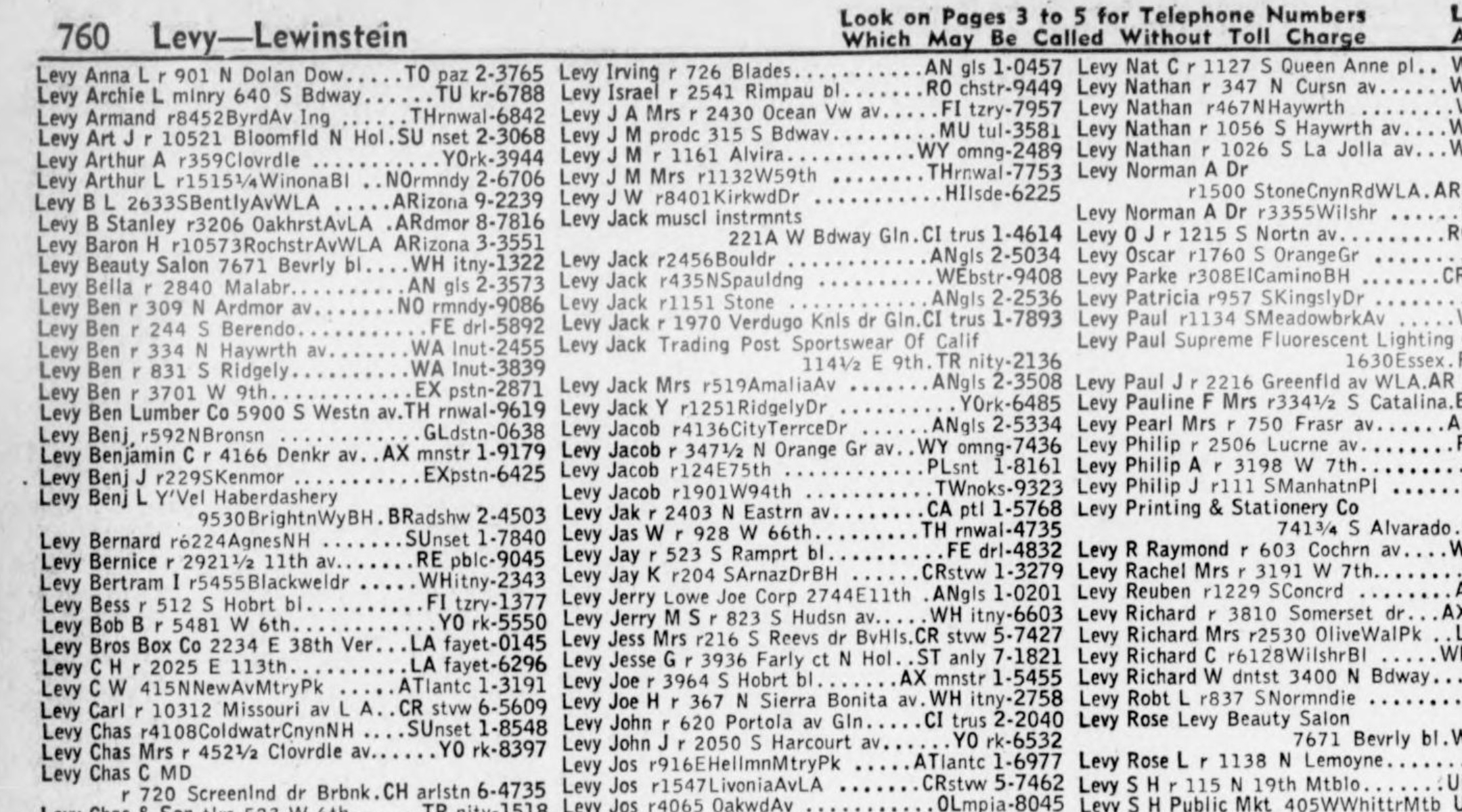
A page from a 1947 Los Angeles area phone book. (Screenshot)
How do researchers study American Jews? At least some of the time, they use a list of 29 names that are distinctively Jewish, according to a research protocol that was devised in 1942 and is still used today. The list — which could not be found online until we published it — consists of entirely Ashkenazi surnames, so it would do poorly for identifying, for example, Persian, Israeli or Russian Jews, a growing concern as American Jewry becomes increasingly diverse. Still, researchers say it has value, and they’re updating the list so it stays useful in the future.
Jerry Lewis’ infamously terrible Holocaust movie is having a moment. You still can’t watch it.
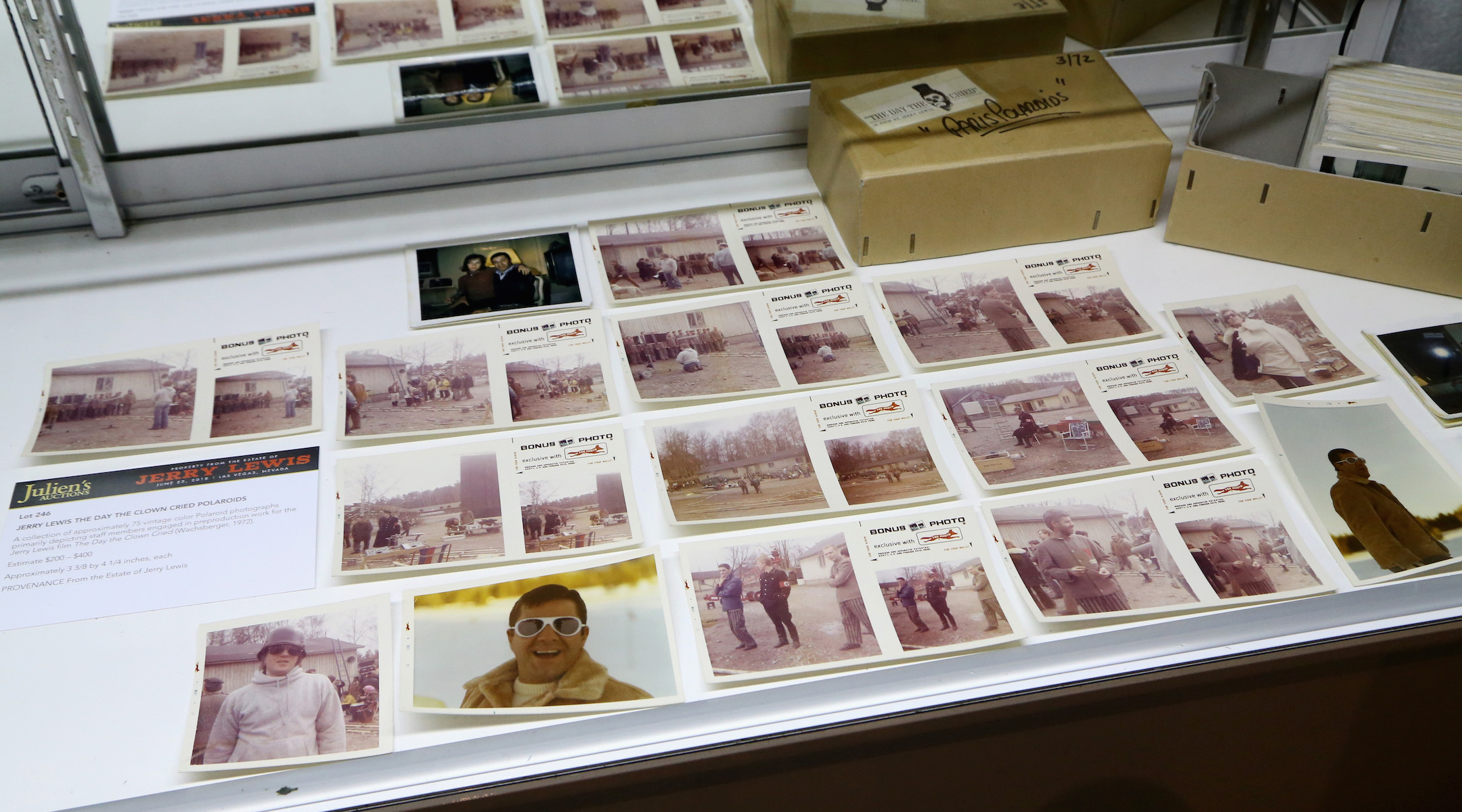
Polaroid photographs from behind the scenes of the unreleased movie “The Day the Clown Cried” on display during Julien’s Auctions’ Jerry Lewis estate auction at Planet Hollywood Resort & Casino on June 22, 2018 in Las Vegas, Nevada. (Gabe Ginsberg/Getty Images)
Film buffs have long understood that legendary funnyman Jerry Lewis never wanted anyone to see his Holocaust movie. “The Day the Clown Cried,” a maudlin tragicomedy about a German clown ordered to entertain children at the Auschwitz death camps, was filmed in the early 1970s but never completed or released, and it has remained unseen. This year, Lewis’ folly reentered the public eye, with a documentary devoted to it, a Hollywood producer acquiring rights to the original script, and the Library of Congress opening its trove of material to researchers. What you need to know about what’s widely thought to be the worst Holocaust movie ever made.
Klezmer legend Frank London was gearing up for the fight of his life. But first, one more show.

Frank London, standing, works with a team of musicians at Beth El Synagogue Center in New Rochelle, New York, May 22, 2024. (Aaron Bendich)
An all-star lineup of Jewish musicians hunkered down at a suburban New York City synagogue one night in May to tackle an intimidating feat: They would be recording seven new liturgical songs without ever having played together before, or even fully worked out the music and words. The breakneck pace was not a choice: The lead musician, klezmer legend Frank London, had been ordered by his oncologist to report to the hospital to start a grueling regimen of treatments meant to cure his rare cancer. The songs have now been released as an album and London is preparing to retake the stage in early 2025.
A German soldier looted postcards from doomed Jews in Poland. 80 years later, his granddaughter brought them back.
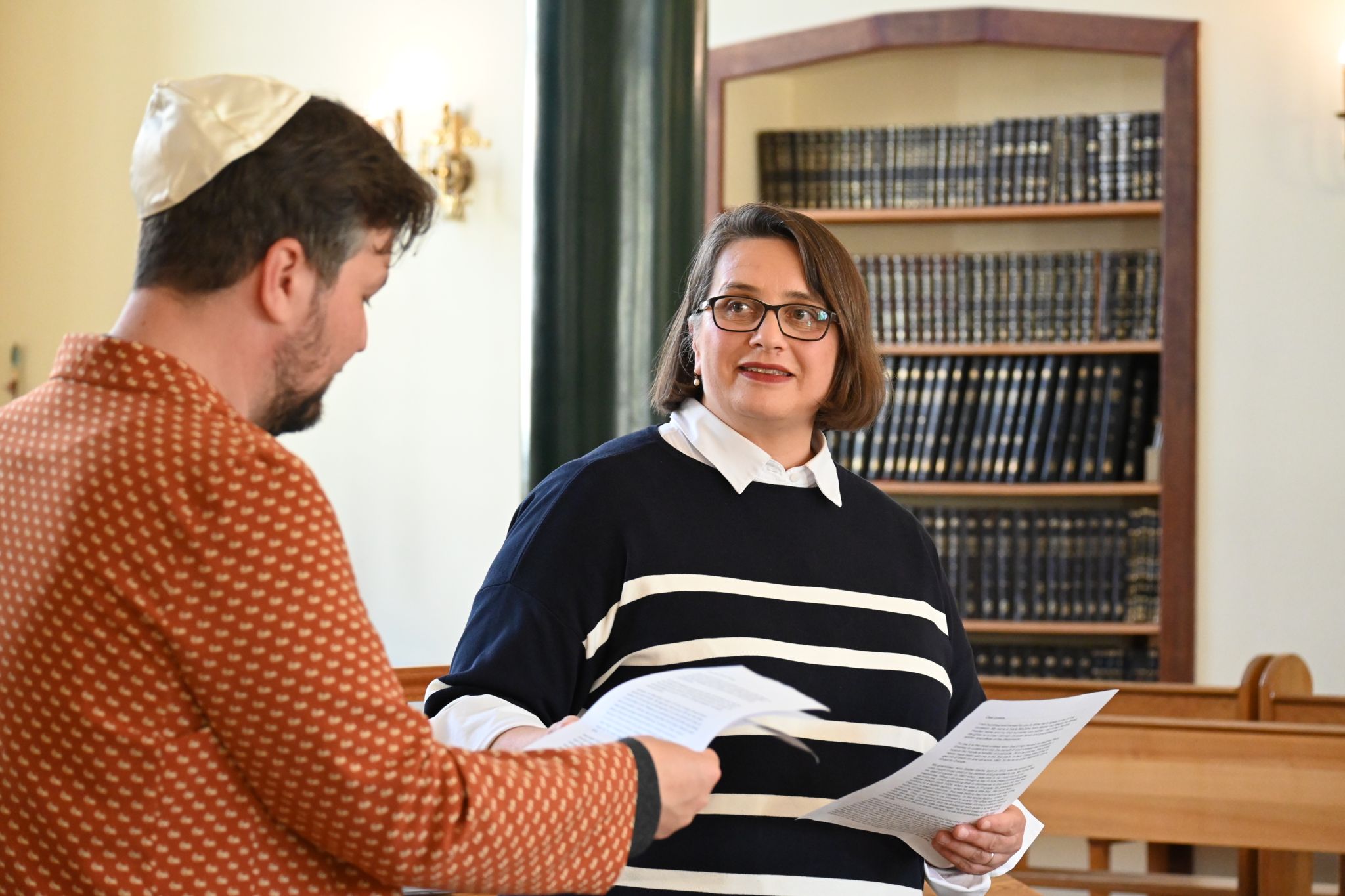
Karla McCabe speaks at a ceremony where she returned postcards that her Nazi soldier grandfather looted from the Lublin yeshiva, April 11, 2024. (Courtesy Monika Tarajko)
As a child, Karla McCabe knew her grandfather had been a German soldier in World War II — but she didn’t know what he did during those years. Later, she inherited part of his stamp collection and discovered postcards addressed to a destination destroyed by the Nazis: the famed Chachmei Lublin Yeshiva in Poland. This year, McCabe returned the postcards to Lublin, where just 40 Jews live but an effort is underway to retrieve relics of the lost Jewish house of study. “These cards are neither a gift nor a donation,” she said in a ceremony we covered from Poland. “I am simply bringing home Holocaust loot.”
In the Spanish town of León, locals serve up a seasonal ‘Kill Jews’ cocktail
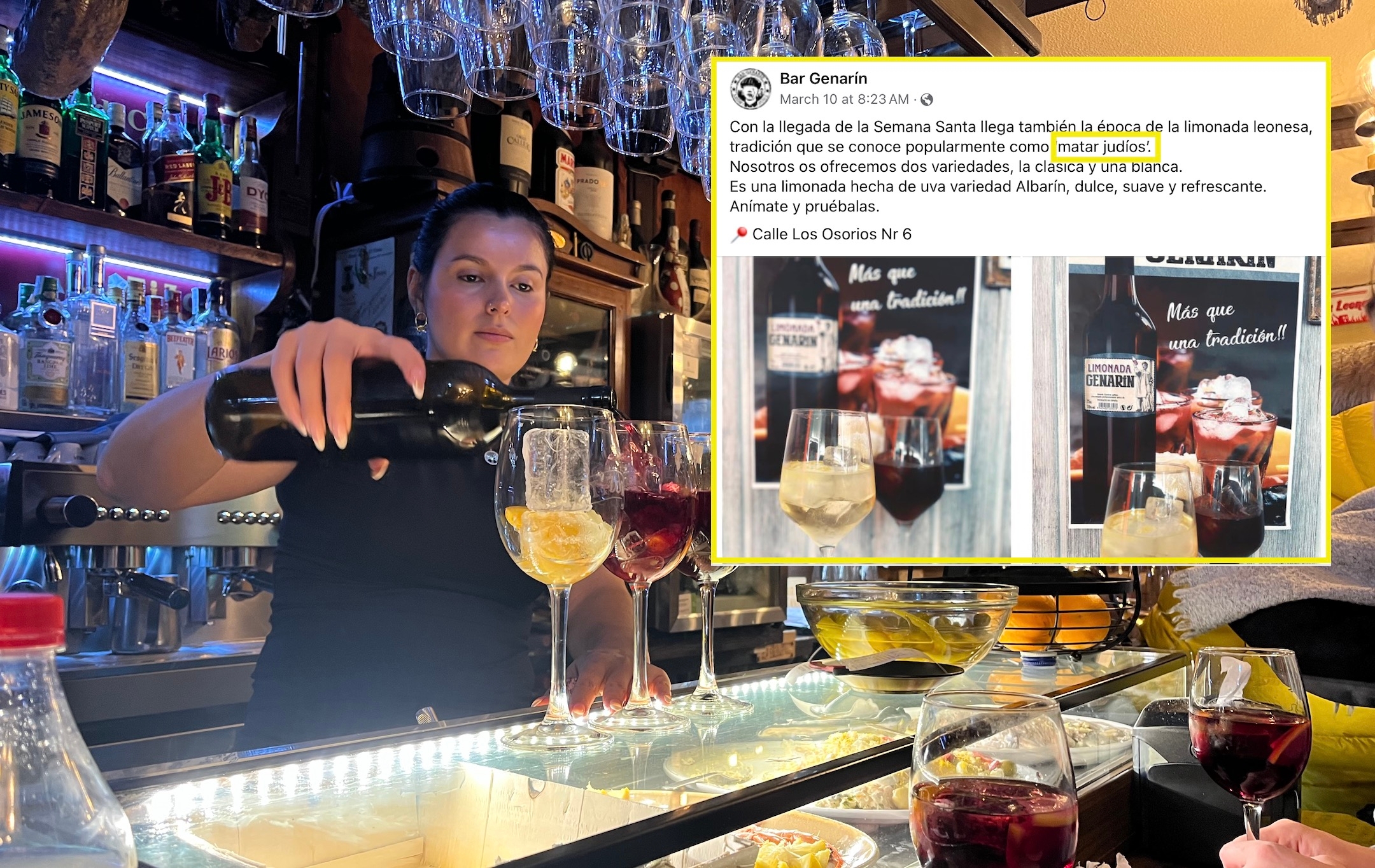
Some bars in León, Spain advertise that they serve “Mata judios” cocktails, though most menus say “limonada.” (Shira Li Bartov)
“Semana Santa,” or the holy week before Easter, is the most important religious period in Spain. The city of León hosts particularly spectacular celebrations — all accompanied by a Leonese cocktail made from red wine, lemons, cinnamon and sugar that revelers call a “Kill Jews” cocktail. “It’s strange to foreigners, but they take it with a laugh,” said a server at a local tapas bar. “Here it’s normal.” The tradition has drawn attention to León’s lost Jewish history.
Meet J.D. Vance’s Jewish chief of staff

Jacob Reses, second from the left, accompanies J.D. Vance to a meeting with Senate Republicans at the U.S. Capitol in Washington, DC. on Nov. 16, 2022. (Anna Moneymaker/Getty Images)
Jacob Reses’ earliest political activity, as a teenager, involved campaigning to raise local taxes and denouncing the right-wing commentator Ann Coulter as “spewing hate.” It was hardly an obvious launching pad for a career in Republican politics, but this year, Reses, the grandson of a Holocaust refugee, quietly became one of the most influential conservatives in the United States when his boss, J.D. Vance, was elected vice president. What role Reses will play in the new administration is not publicly known — but his presence as a Jewish chief of staff was notable in a campaign season characterized by rising Christian nationalism among Republicans.
JTA has documented Jewish history in real-time for over a century. Keep our journalism strong by joining us in supporting independent, award-winning reporting.
